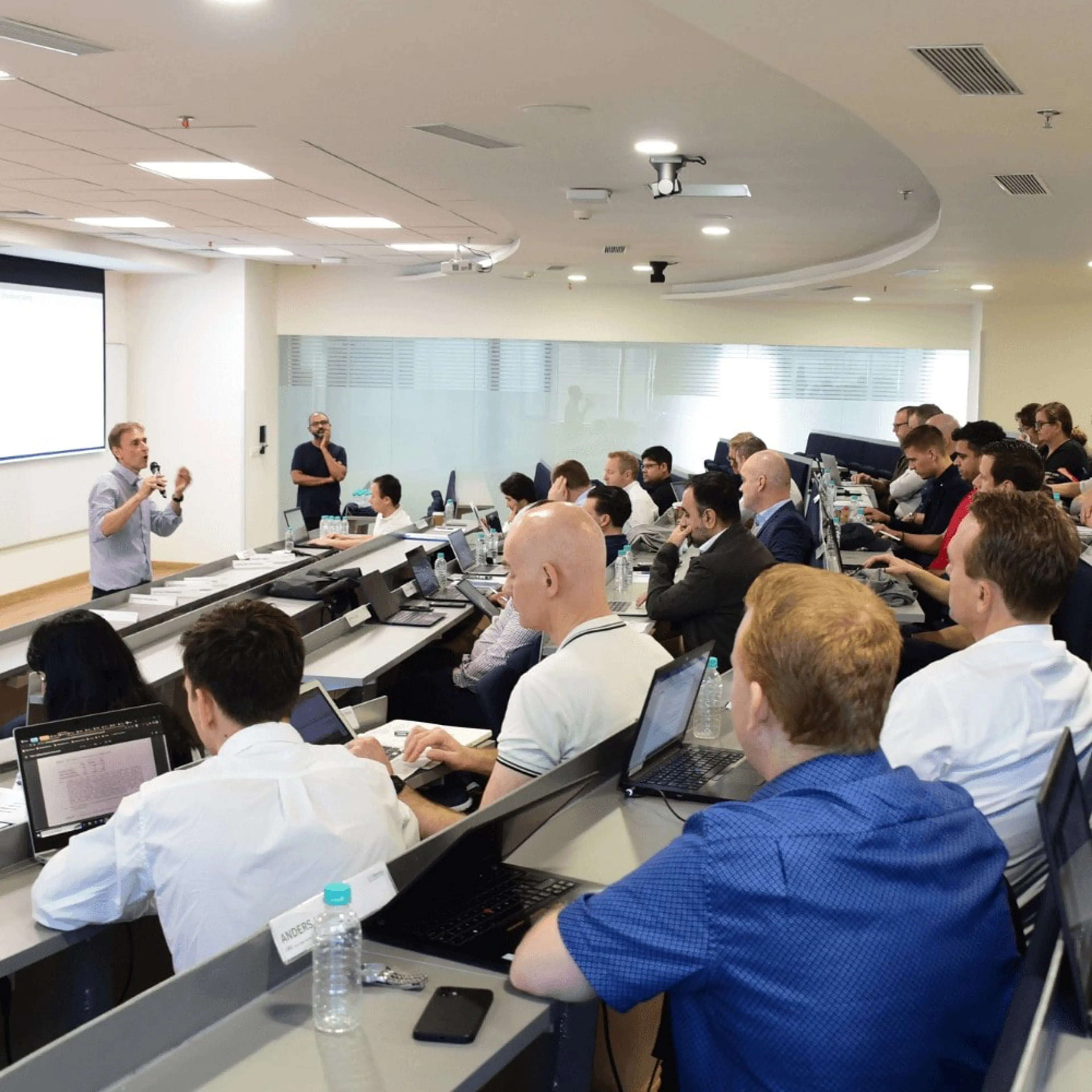Crucial insights
The course has been created for EMBA students, who are typically employed in the private sector, and provides insight into how their firms will be impacted by the broader economic situation.
Cláudia Alves, EMBA participant and Technical Program Manager at Google for Data Centre Operations, reflects on how the macroeconomics course enabled her to mitigate these issues within her own organization: “I was not expecting to apply anything I’d learned to my firm because I don’t work with finance, but it helped me regardless. We had the opportunity to talk with Commerzbank AG CRO’s Dr. Marcus Chromik and he gave some examples of how they approach risk management, geopolitics, and macroeconomics impacts on the business. So, I took that and input it into what I do in my company from my position, and I started looking into risk management for the operations from a more macro-perspective.”
Changing geopolitical landscape
Macroeconomics is always relevant and important year-upon-year because the market is in a constant state of fluctuation. For firms, this means adapting their strategies dependent on whether the market is expected to go up or down. Says Professor Rangvid, “From a strategic point of view, we focus on what will happen over the next couple of years but also, we try to explain this over the long term and to consider what the most likely outcomes that we can expect are.”
“It’s about creating an informed view of what is going to happen – it’s uncertain but it isn’t random. We aim to help our students understand and then predict what is driving the economy and financial markets.”
Overseas insight
Cláudia says of the tour, “It was good to have this combination between Frankfurt and London. Our visit to the Commerzbank was a highlight because of the amazing talk from the chief risk officer there. I found it amazing how we can connect totally different industries (the bank industry and my industry; dataset operations) and at the end of the day we work in the same way. It’s so interesting to see how we apply the same foundations and have the same goal.”
For Cláudia, the relationship between the theory and the practical trip was illuminating. She says, “It was also fascinating to connect what we had as theoretical information with how the industry (the bank and other financial institutions) are applying it day-to-day. In particular the geopolitical landscape – we got all these different pieces of the puzzle. And we could see these real things first-hand, how they connect and how all of these variables have an impact on the economy.”
Developing general knowledge
The course provides students with language and insight into how things fit together but it can be complex. Rangvid admits, “It’s fair to say that this is not an easy course because there’s a lot of jargon and concepts that aren’t everyday knowledge. It may be that you read ‘GDP’ in a newspaper but that doesn’t tell you what it means and why it is important.”
From Cláudia’s perspective, she took the challenges in her stride. She says, “It was a very positive experience and really well-rounded, I enjoyed that we also took the time to receive lectures from the professor.” Plus, she found something to relate to during the course, “I care about people, and so with an understanding of macroeconomics, we can more or less manage what’s coming and minimize the impact of the bad things and take advantage of the good things that are on the way.”
“This is precisely the aim of the course,” adds Professor Rangvid. “In spite of the challenges, macroeconomics is something that everyone can relate to as it has a direct impact on our lives; unemployment is going up, the price of property is fluctuating and so on, so there are always direct lines of effect that students can relate to. And I always hope that they have something that resonates with them that they can take away.”


